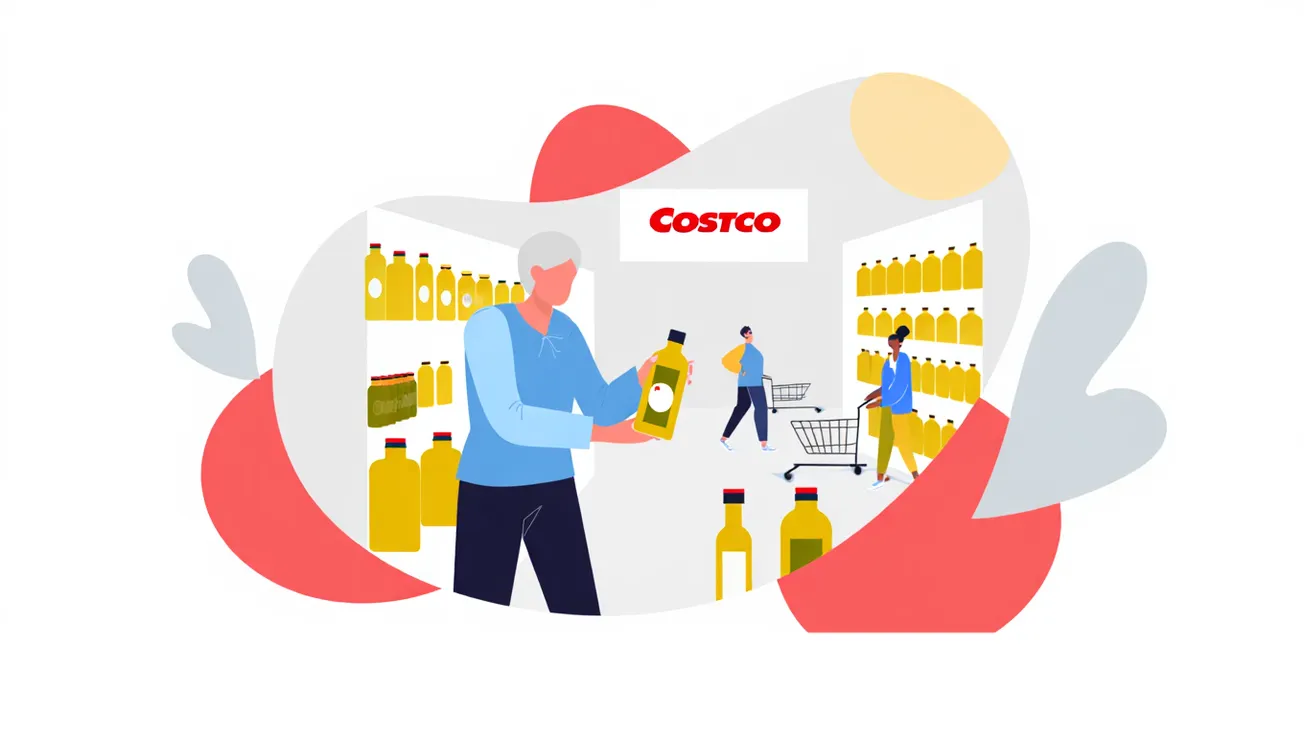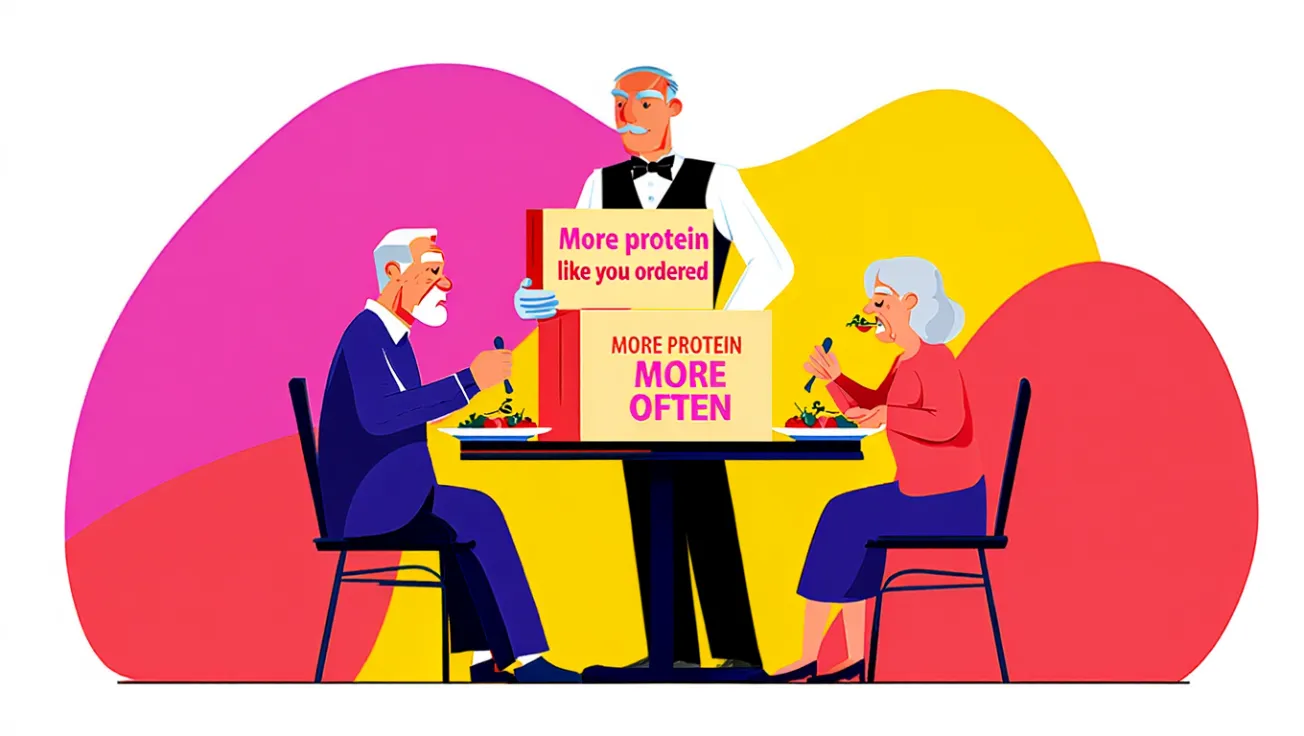The Takeaway
- Many “vegetable” oils are actually seed oils (canola, soybean, sunflower) that may oxidize or go rancid over time.
- Newer research says seed oils aren’t villains—but the highly processed foods that use them often are.
- Raw sauerkraut, pumpkin seeds, and wild sardines pack real nutritional benefits for aging bodies.
- Read every label: “heart healthy” or “natural” doesn’t always mean what it sounds like.
- For oils, look for single-origin extra-virgin olive oil or avocado oil—less marketing, more nutrition.
The Costco Conversation
If you’ve ever wondered whether that big bottle of “vegetable oil” is really doing your body any favors, you’re not alone. Dr. Eric Berg, known for his practical health advice on YouTube*, recently walked through a Costco with nutrition YouTuber Bobby Parrish (of “FlavCity," but he's not "Bobby Flay") to talk about what’s really behind some of those bulk-buy food labels.
Standing in front of a shelf of “heart healthy” cooking oils, Berg didn’t mince words.
“They call it vegetable oil, but it’s not made from vegetables,” he said. “It’s seed oil—mostly soybean or canola—and it’s unstable. It oxidizes, and that can trigger inflammation.”
The two went on to dissect bottles of canola, sunflower, and grapeseed oils—products Berg called “rancid oil in a jug.” His gripe? These oils are refined at high heat, stripped of natural nutrients, and often deodorized to hide the smell of oxidation.
*(That video is available at the bottom of this article)
Are Seed Oils Really That Bad?
For years, seed oils have been castBad?
For years, seed oils have been cast as the enemy of heart health and longevity. But newer studies tell a more balanced story.
- A Johns Hopkins review found that seed oils don’t automatically cause inflammation—the risk comes when the rest of the diet is out of balance.
- Stanford University’s Dr. Christopher Gardner notes that omega-6 fats (found in seed oils) aren’t inherently harmful; it’s the over-processing and lack of omega-3s that skew the equation.
- In fact, people who consume moderate amounts of polyunsaturated fats—found in many seed oils—often show lower rates of cardiovascular disease.
So while Berg’s caution about rancid oils is valid—especially for seniors who may already struggle with inflammation—the message isn’t to fear all seed oils. It’s to avoid the ultra-processed foods that contain them.
Oils That Do the Body Good
Berg and Parrish agreed that extra-virgin olive oil and avocado oil are better bets. The key, they said, is purity.
“Over 80% of the ‘extra virgin’ olive oils on the shelf are fake or blended,” Parrish noted. “Look for single-origin oil with lab certification.”
For seniors trying to reduce inflammation or manage cholesterol, both olive and avocado oil offer monounsaturated fats that support heart and brain health. Just store them away from heat and light—those clear Costco jugs don’t do your oils any favors.
The Real Nutrition Powerhouses
The pair moved on to other finds that are far less controversial—and particularly relevant for older adults:
Pumpkin Seeds (Sprouted, Lightly Salted)
- A quarter cup delivers around 40% of your daily magnesium, essential for muscle function, stress regulation, and sleep.
- Sprouting improves absorption and reduces “anti-nutrients.”
Raw Sauerkraut (Unpasteurized)
- Rich in vitamin C—some sources claim up to 700 mg per cup.
- Full of probiotics that help gut health, immunity, and nutrient absorption.
- A budget buy, too: a Costco-sized jar costs less than half what smaller brands charge.
Wild Sardines in Extra-Virgin Olive Oil
- High in DHA and EPA omega-3s, key for heart, brain, and joint health.
- A top source of selenium, which supports thyroid function and liver detoxification.
What to Skip
Berg also flagged two Costco staples worth a second look:
“Omega Mix” Snack Blends – Often marketed as anti-inflammatory but coated in canola oil, sugar, and preservatives.
One-A-Day Multivitamins – The first ingredient is usually calcium carbonate (“basically limestone,” Berg joked), plus synthetic fillers that may not absorb well.
The Bottom Line for Seniors
Dr. Berg’s trip through Costco wasn’t just about food labels—it was about how to think like a label detective.
For seniors managing inflammation, cholesterol, or digestive issues, the message is straightforward:
- Favor whole foods. Fresh produce, nuts, seeds, and fish should anchor your cart.
- Go easy on industrial oils. Use olive or avocado oil when cooking.
- Add fermented foods. They help maintain gut balance and immunity.
- Question “healthy” marketing. The front label is a billboard; the truth is in the fine print.
Even if you don’t buy into every claim, Berg’s Costco walk-through offers one lesson we can all use: aging well starts with reading labels—and knowing which “healthy” foods actually earn the title.
Disclaimer: This article is for informational purposes only and is not a substitute for professional medical advice. Always consult your physician before making major dietary changes.










